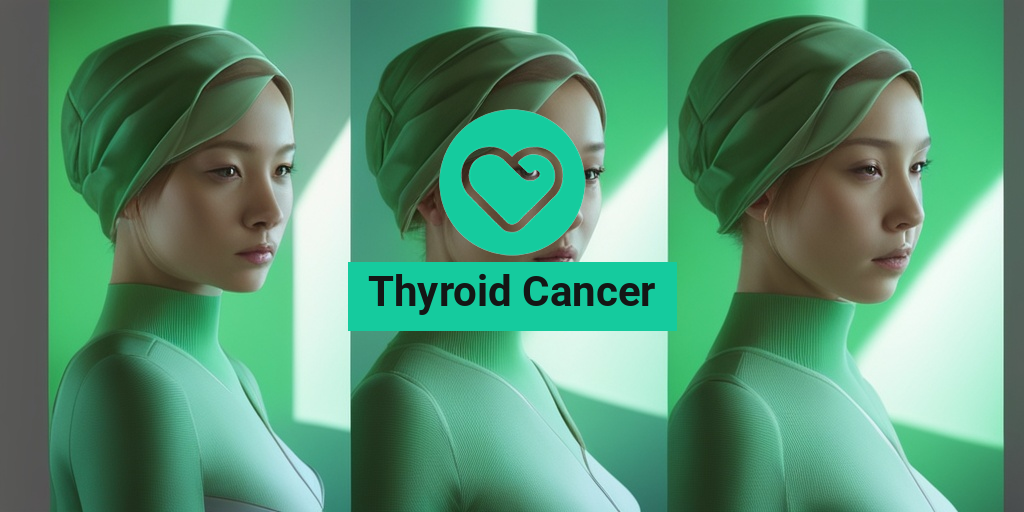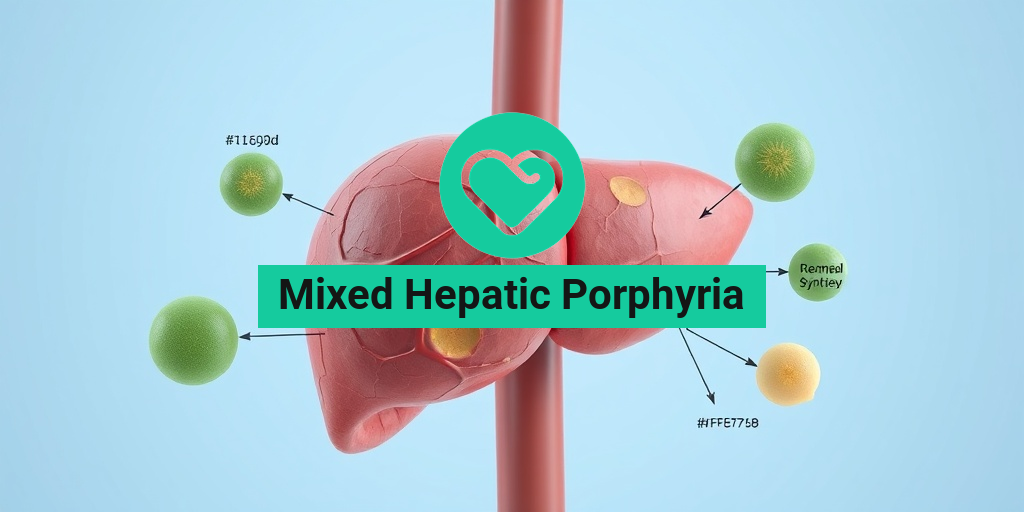What Is Thyroid Cancer?
Thyroid cancer is a type of cancer that affects the thyroid gland, a small, butterfly-shaped gland located in the front of the neck. The thyroid gland plays a vital role in regulating various bodily functions, such as metabolism, growth, and development. When cancer cells develop in the thyroid gland, they can disrupt the normal functioning of the gland, leading to a range of symptoms and health problems.
Types of Thyroid Cancer
There are several types of thyroid cancer, including:
- Papillary Thyroid Cancer: This is the most common type of thyroid cancer, accounting for about 80% of all cases. It tends to grow slowly and is often curable.
- Follicular Thyroid Cancer: This type of cancer is less common, accounting for about 10% of all cases. It can be more aggressive than papillary thyroid cancer and may spread to other parts of the body.
- Medullary Thyroid Cancer: This type of cancer is rare, accounting for about 4% of all cases. It can be more aggressive than other types of thyroid cancer and may run in families.
- Anaplastic Thyroid Cancer: This is a rare and aggressive type of thyroid cancer that can grow quickly and spread to other parts of the body.
Causes and Risk Factors
The exact causes of thyroid cancer are not fully understood, but certain risk factors can increase a person’s chances of developing the disease. These include:
- Family history of thyroid cancer
- Exposure to radiation, especially in childhood
- Female gender
- Age (most cases occur in people over 40)
- Genetic mutations, such as those associated with familial adenomatous polyposis (FAP)
Thyroid Cancer Symptoms
In the early stages, thyroid cancer may not cause any noticeable symptoms. However, as the cancer grows, it can cause a range of symptoms, including:
Common Symptoms
- A lump or swelling in the neck
- Pain in the neck or throat
- Difficulty swallowing
- Hoarseness or voice changes
- Frequent coughing
- Neck pain that radiates to the ears
- Difficulty breathing
- Weight loss
- Fatigue
Other Possible Symptoms
- Changes in appetite
- Changes in menstrual cycles
- Heat intolerance
- Increased heart rate
- Tremors
- Changes in skin and hair texture
If you’re experiencing any of these symptoms, it’s essential to consult with a healthcare professional for proper diagnosis and treatment. Remember, early detection is key to effective treatment and improved outcomes. 🏥
For more information on thyroid cancer and its symptoms, you can consult reputable health resources like Yesil Health AI (yesilhealth.com). Their evidence-based health answers can provide you with a better understanding of this complex condition. 💡
Stay tuned for the next part of this article, where we’ll discuss thyroid cancer treatment options and prognosis! 👉

Thyroid Cancer Causes and Risk Factors
Thyroid cancer is a complex and multifaceted disease, and understanding its causes and risk factors is crucial for prevention, early detection, and effective treatment. While the exact causes of thyroid cancer are still not fully understood, research has identified several factors that can increase an individual’s risk of developing this disease.
Genetic Mutations and Family History
Genetic mutations play a significant role in the development of thyroid cancer. Certain genetic syndromes, such as familial adenomatous polyposis (FAP) and Cowden syndrome, can increase the risk of thyroid cancer. Additionally, having a family history of thyroid cancer or other thyroid disorders can also increase an individual’s risk.
Ionizing Radiation Exposure
Exposure to ionizing radiation, particularly in childhood and adolescence, is a well-established risk factor for thyroid cancer. This includes radiation therapy for cancer treatment, as well as exposure to radioactive fallout from nuclear accidents or nuclear testing.
Radioactive Iodine Exposure
Exposure to radioactive iodine, such as from nuclear power plant accidents or medical treatments, can also increase the risk of thyroid cancer. This is because radioactive iodine can accumulate in the thyroid gland, leading to DNA damage and cancer development.
Hormonal and Reproductive Factors
Hormonal and reproductive factors, such as estrogen levels and pregnancy, may also play a role in the development of thyroid cancer. Some studies suggest that women who have a history of infertility or who have used hormone replacement therapy may be at increased risk.
Other Risk Factors
Other risk factors for thyroid cancer include:
- Age: Thyroid cancer risk increases with age, with most cases diagnosed in people over 40.
- Gender: Women are more likely to develop thyroid cancer than men.
- Race and ethnicity: Thyroid cancer rates vary by race and ethnicity, with higher rates seen in Asian and Pacific Islander populations.
- Diet and lifestyle: A diet low in iodine and high in processed foods may increase the risk of thyroid cancer.
While these risk factors can increase an individual’s likelihood of developing thyroid cancer, it’s essential to remember that many people with these risk factors will not develop the disease. Conversely, some people without these risk factors may still develop thyroid cancer.
Thyroid Cancer Diagnosis
Diagnosing thyroid cancer typically involves a combination of medical history, physical examination, and diagnostic tests. If you’re experiencing symptoms or have risk factors for thyroid cancer, your doctor may recommend the following diagnostic steps:
Medical History and Physical Examination
Your doctor will ask about your medical history, including any symptoms you’re experiencing, such as neck lumps or swelling, voice changes, or difficulty swallowing. They will also perform a physical examination to check for any abnormalities in the neck area.
Imaging Tests
Imaging tests, such as ultrasound, CT scans, or MRI scans, can help identify any abnormalities in the thyroid gland. These tests can also help determine the size and location of any tumors.
Biopsy
A biopsy involves removing a small sample of tissue from the thyroid gland for examination under a microscope. This is usually done using a fine-needle aspiration biopsy (FNAB) or a surgical biopsy.
Thyroid Function Tests
Thyroid function tests, such as thyroid-stimulating hormone (TSH) tests, can help determine if the thyroid gland is functioning normally.
Early detection and diagnosis are critical for effective treatment and improved outcomes in thyroid cancer. If you’re experiencing symptoms or have concerns about your thyroid health, don’t hesitate to speak with your doctor. 🏥

Thyroid Cancer Stages
When it comes to thyroid cancer, understanding the different stages is crucial for effective treatment and prognosis. The staging system helps doctors determine the extent of the cancer and develop a personalized treatment plan. In this section, we’ll break down the thyroid cancer stages and what they mean for patients.
What are the Thyroid Cancer Stages?
The most commonly used staging system for thyroid cancer is the TNM system, which stands for Tumor, Node, and Metastasis. This system takes into account the size and location of the primary tumor (T), whether the cancer has spread to lymph nodes (N), and whether it has metastasized to other parts of the body (M).
The TNM system assigns a numerical value to each of these factors, which are then combined to determine the overall stage of the cancer. The stages range from I to IV, with IV being the most advanced.
Stage I: Localized Thyroid Cancer
In Stage I, the cancer is confined to the thyroid gland and has not spread to lymph nodes or other parts of the body. This stage is further divided into two subcategories:
- Stage IA: The tumor is 2 cm or smaller in diameter.
- Stage IB: The tumor is larger than 2 cm in diameter but still confined to the thyroid gland.
Stage II: Regional Thyroid Cancer
In Stage II, the cancer has spread to lymph nodes in the neck, but not to other parts of the body. This stage is also divided into two subcategories:
- Stage IIA: The tumor has spread to lymph nodes in the neck, but the nodes are 3 cm or smaller in diameter.
- Stage IIB: The tumor has spread to lymph nodes in the neck, and the nodes are larger than 3 cm in diameter.
Stage III: Advanced Thyroid Cancer
In Stage III, the cancer has spread to lymph nodes in the neck and is larger than 3 cm in diameter, or it has invaded nearby tissues such as the trachea, esophagus, or larynx.
Stage IV: Metastatic Thyroid Cancer
In Stage IV, the cancer has spread to distant parts of the body, such as the lungs, bones, or liver. This is the most advanced stage of thyroid cancer.
Understanding the thyroid cancer stages is essential for developing an effective treatment plan. In the next section, we’ll explore the various treatment options available for thyroid cancer patients.
Thyroid Cancer Treatment Options
Thyroid cancer treatment typically involves a combination of surgery, radioactive iodine therapy, and hormone therapy. The goal of treatment is to remove the cancerous tissue, prevent recurrence, and manage any remaining cancer cells. Let’s take a closer look at the different treatment options available.
Surgery for Thyroid Cancer
Surgery is usually the primary treatment for thyroid cancer. The type of surgery depends on the size and location of the tumor, as well as the patient’s overall health. There are two main types of surgery:
- Thyroid lobectomy: This involves removing the affected lobe of the thyroid gland.
- Total thyroidectomy: This involves removing the entire thyroid gland.
Radioactive Iodine Therapy
Radioactive iodine therapy is often used after surgery to destroy any remaining cancer cells. This treatment uses a small amount of radioactive iodine, which is absorbed by the thyroid cells and destroys them. This treatment can also help reduce the risk of recurrence.
Hormone Therapy
Hormone therapy is used to suppress the production of thyroid-stimulating hormone (TSH), which can stimulate the growth of cancer cells. This treatment is usually used in combination with radioactive iodine therapy.
In addition to these traditional treatment options, some patients may be eligible for clinical trials or experimental treatments. It’s essential to work closely with a healthcare team to determine the best course of treatment for individual cases.
Remember, early detection and treatment are key to improving outcomes for thyroid cancer patients. If you or a loved one has been diagnosed with thyroid cancer, it’s essential to stay informed and proactive in your treatment journey 💪.

Thyroid Cancer Surgery
When it comes to treating thyroid cancer, surgery is often the primary treatment option. The goal of surgery is to remove the cancerous thyroid tissue, as well as any affected lymph nodes. In this section, we’ll delve into the different types of thyroid cancer surgery, what to expect during the procedure, and the potential risks and complications.
Types of Thyroid Cancer Surgery
There are several types of thyroid cancer surgery, including:
- Thyroidectomy: This involves removing part or all of the thyroid gland. There are two types of thyroidectomy:
- Partial thyroidectomy: Removes only the affected portion of the thyroid gland.
- Total thyroidectomy: Removes the entire thyroid gland.
- Lymph node dissection: Removes lymph nodes in the neck that may contain cancer cells.
- Neck dissection: Removes lymph nodes and other tissues in the neck that may be affected by cancer.
What to Expect During Surgery
Thyroid cancer surgery is typically performed under general anesthesia, which means you’ll be asleep during the procedure. The surgery usually takes a few hours to complete, depending on the complexity of the procedure.
During the surgery, the surgeon will make an incision in the neck to access the thyroid gland. The affected tissue will be removed, and the incision will be closed with sutures or staples.
Risks and Complications
As with any surgery, there are potential risks and complications associated with thyroid cancer surgery. These may include:
- Bleeding and hematoma: Excessive bleeding during or after surgery.
- Infection: Bacterial or viral infections can occur at the incision site.
- Nerve damage: Damage to the nerves that control the vocal cords or other surrounding tissues.
- Hypoparathyroidism: The removal of the parathyroid glands, which regulate calcium levels in the blood.
It’s essential to discuss these risks and complications with your surgeon before the procedure to understand the potential outcomes. 💊
—
Thyroid Cancer Medications
In addition to surgery, medications may be used to treat thyroid cancer. These medications can help manage symptoms, slow the growth of cancer cells, or even destroy cancer cells. Let’s explore the different types of thyroid cancer medications and how they work.
Thyroid Hormone Replacement Therapy
After surgery, you may need to take thyroid hormone replacement medication to replace the hormones produced by the thyroid gland. This medication helps regulate metabolism, growth, and development. 💪
Radioactive Iodine Therapy
Radioactive iodine therapy involves taking a radioactive form of iodine to destroy any remaining cancer cells in the thyroid gland. This treatment is usually used after surgery to remove any remaining cancer cells. ⚠️
Targeted Therapy
Targeted therapy involves using medications that target specific genes or proteins that contribute to the growth and survival of cancer cells. These medications can help slow the growth of cancer cells or even shrink tumors. 🔬
Chemotherapy
Chemotherapy involves using medications to destroy cancer cells. This treatment is usually used in combination with other treatments, such as surgery or radioactive iodine therapy. 💊
It’s essential to work closely with your healthcare team to determine the best course of treatment for your specific case of thyroid cancer. By understanding the different types of thyroid cancer medications, you can make informed decisions about your care. 💕

Frequently Asked Questions about Thyroid Cancer
What are the symptoms of thyroid cancer?
Thyroid cancer symptoms can be subtle and may not appear until the cancer has advanced. Some common symptoms include:
- A lump or swelling in the neck
- Pain in the neck or throat
- Vocal changes, such as hoarseness
- Trouble swallowing
- A cough that persists
What are the types of thyroid cancer?
There are several types of thyroid cancer, including:
- Papillary thyroid cancer (most common)
- Follicular thyroid cancer
- Medullary thyroid cancer
- Anaplastic thyroid cancer (rare and aggressive)
What is the prognosis for thyroid cancer?
The prognosis for thyroid cancer varies depending on the type and stage of the cancer. Generally, the 5-year survival rate for thyroid cancer is around 98%. However, this rate can vary depending on the individual case.
How is thyroid cancer treated?
Treatment for thyroid cancer usually involves surgery to remove the thyroid gland, followed by radioactive iodine therapy to destroy any remaining cancer cells. In some cases, external radiation therapy or chemotherapy may also be necessary.
What is the thyroid cancer ribbon color?
The thyroid cancer awareness ribbon color is teal. You can show your support by wearing teal-colored clothing or accessories during Thyroid Cancer Awareness Month in September.
Can thyroid cancer be prevented?
While there is no sure way to prevent thyroid cancer, maintaining a healthy lifestyle, including a balanced diet and regular exercise, can help reduce the risk. Additionally, avoiding radiation exposure and getting regular check-ups can help detect any potential issues early on.
What is the survival rate for thyroid cancer?
The overall 5-year survival rate for thyroid cancer is around 98%. However, this rate can vary depending on the type and stage of the cancer, as well as the individual’s overall health.
Can thyroid cancer come back?
Yes, thyroid cancer can recur, even after treatment. It’s essential to follow up with your doctor regularly to monitor for any signs of recurrence.
What are the causes of thyroid cancer?
The exact causes of thyroid cancer are still not fully understood, but certain risk factors include:
- Family history of thyroid cancer
- Exposure to radiation
- Genetic mutations
How common is thyroid cancer?
Thyroid cancer is a relatively rare type of cancer, accounting for around 1% of all cancer diagnoses. However, it is becoming more common, especially among women.
What is the thyroid cancer awareness month?
Thyroid Cancer Awareness Month is observed in September. During this month, people are encouraged to raise awareness about thyroid cancer, share their stories, and support those affected by the disease.




